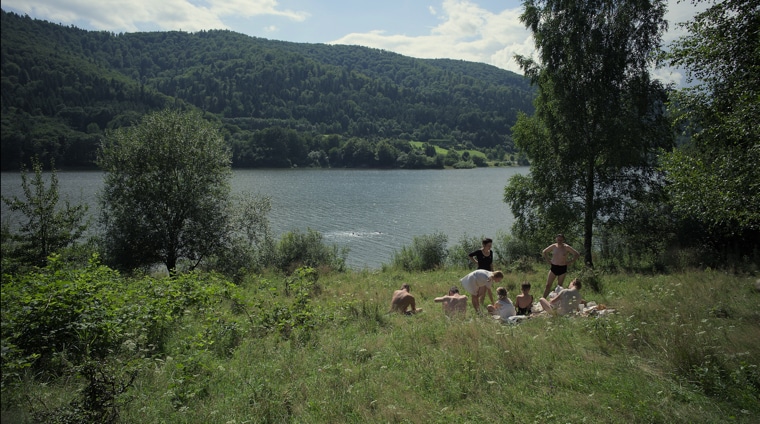 BBC News
BBC NewsBorrowing was £17.4bn last month, the second highest October figure since monthly records began in 1993.

Wri/Dir: Jonathan Glazer | Cast: Sandra Huller, Christian Friedel, Ralph Herforth, Max Beck | UK 107′
Another daring and distinctive outing from the English auteur/commercials director, and his first non-English film, centres on a Nazi family living in an immaculate villa boasting an idyllic flower-filled garden.
On the other side of the wall smoke rises from the ovens of Auschwitz concentration camp. As birdsong fills the air the camera focuses on the crimson petals of a delicate dahlia while screams of torture ring out in Mica Levi’s chilling score. Beauty and horror shared in one chilling frame.
Music leads us it to Glazer’s brave and bracingly original fourth feature, a valuable addition to the Holocaust sub-genre. Inspired by the 2014 novel from Martin Amis it takes an another, unique, look at the genocide this time focusing on a dissociative family in total denial of their neighbours. While they briskly build a life with a growing family thousands are losing theirs in the most inhumane way possible next door.
Immaculately lensed by Lukasz Zal (Cold War), geometric framing and pin-sharp images offer a clinical take on daily life for butch camp commandant Rudolf Höss (Christian Friedel) and his priggish wife and Hedwig (Sandra Hüller) who spends her days complacently primping her garden: the perfect hausfrau with a heart of stone. Meanwhile Rudolf struts into his tidy living room to discuss the best way to incinerate 700,000 Hungarians with his sturmbannfuhrers.
An early scene captures an intimate testament of loss and callous gain: Hedwig twirls around in a beautifully fashioned sable coat, just one of the personal items stolen from an Auschwitz victim. In the pocket a rose red lipstick is dabbed on tentatively and then relegated to her dressing table. As Hedwig and her staff gather round the breakfast table silk lingerie possibly still warm from the bodies of its victims is then divided casually amongst the women as their gossip about food and shopping.
Gradually more sinister elements surface in this Eden which play on our imagination in the same vein at The White Ribbon. A this is very much and interactive experience with its unsettling score that leads us into doom. They are a family going through the motions in their lush riverside setting but clearly all is not well in Paradise.
Cinema is full of stylish films about the Holocaust: most recently Son of Saul and The Conference. This one focussing on the ’Interessengebiet’ (or area around the Auschwitz camp) is far from ‘gemutlich’ but provides endless food for thought and a tribute to Martin Amis, whose novel provided the source material, and whose death was announced on 19th May 2023, just after the film’s Cannes Film Festival premiere. MT
CANNES FILM FESTIVAL | 2023
This article was first published http://Filmuforia.com and is reproduced with their kind permission.